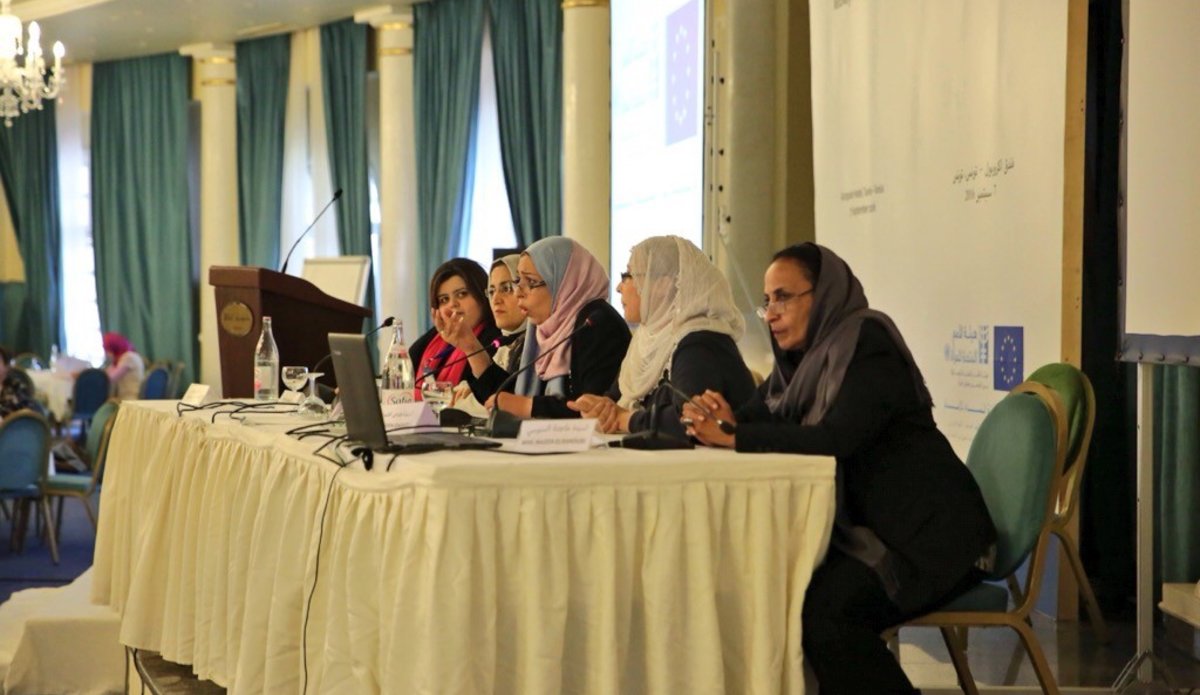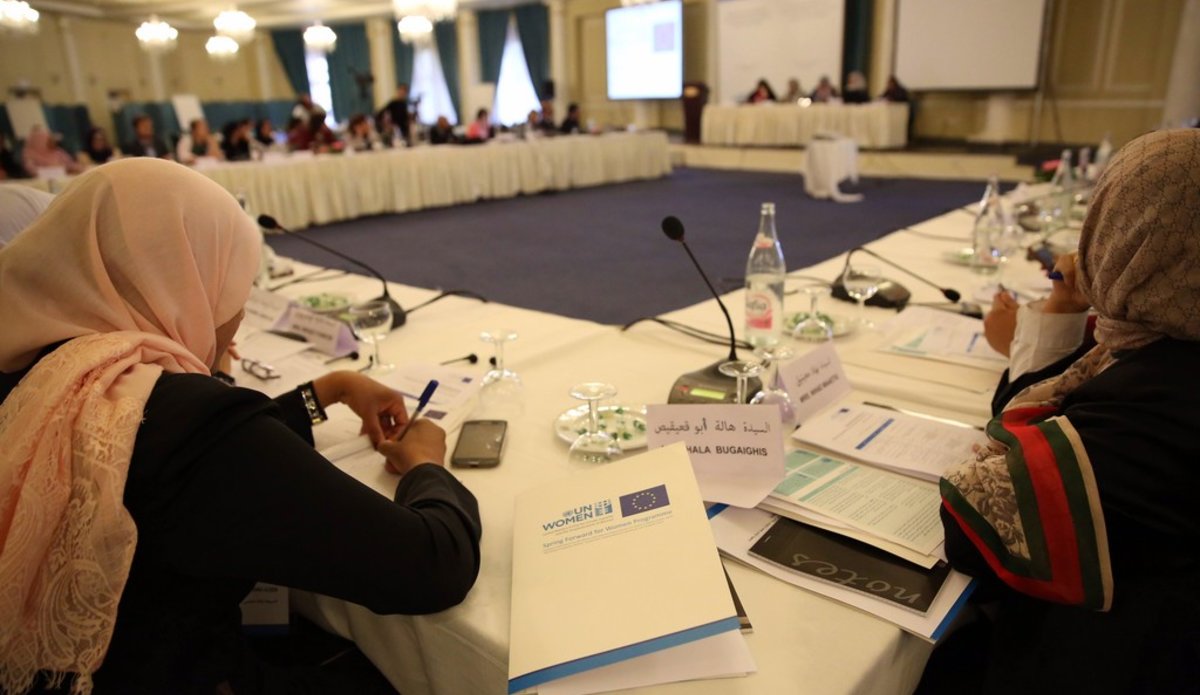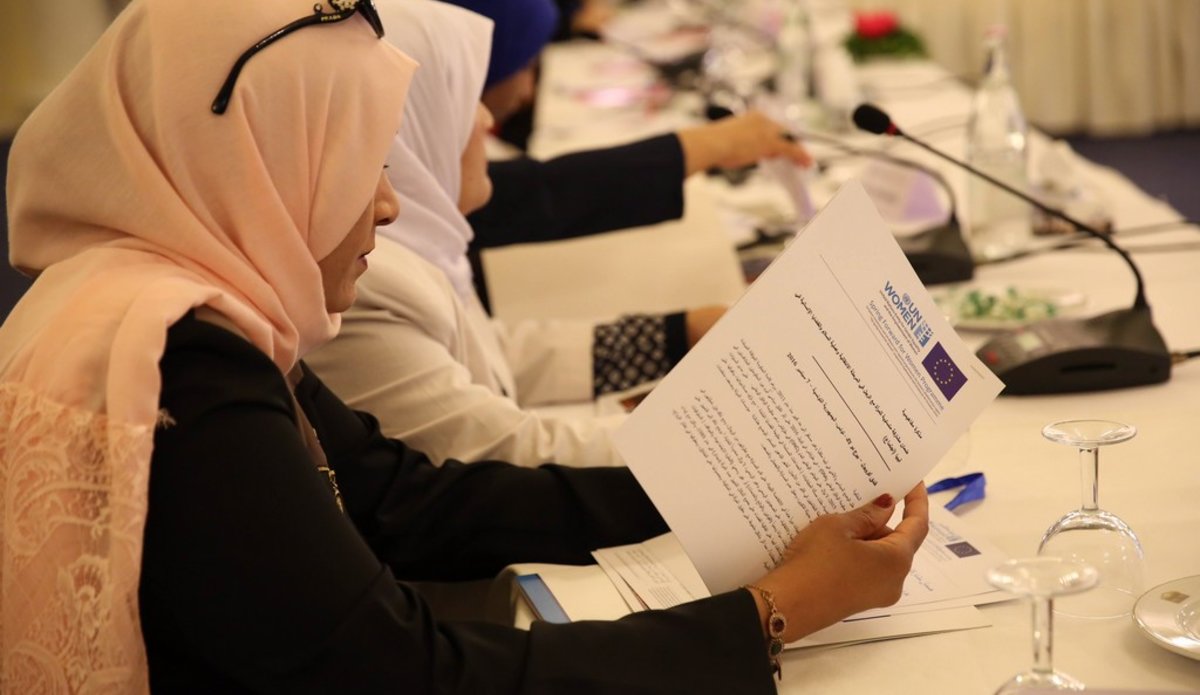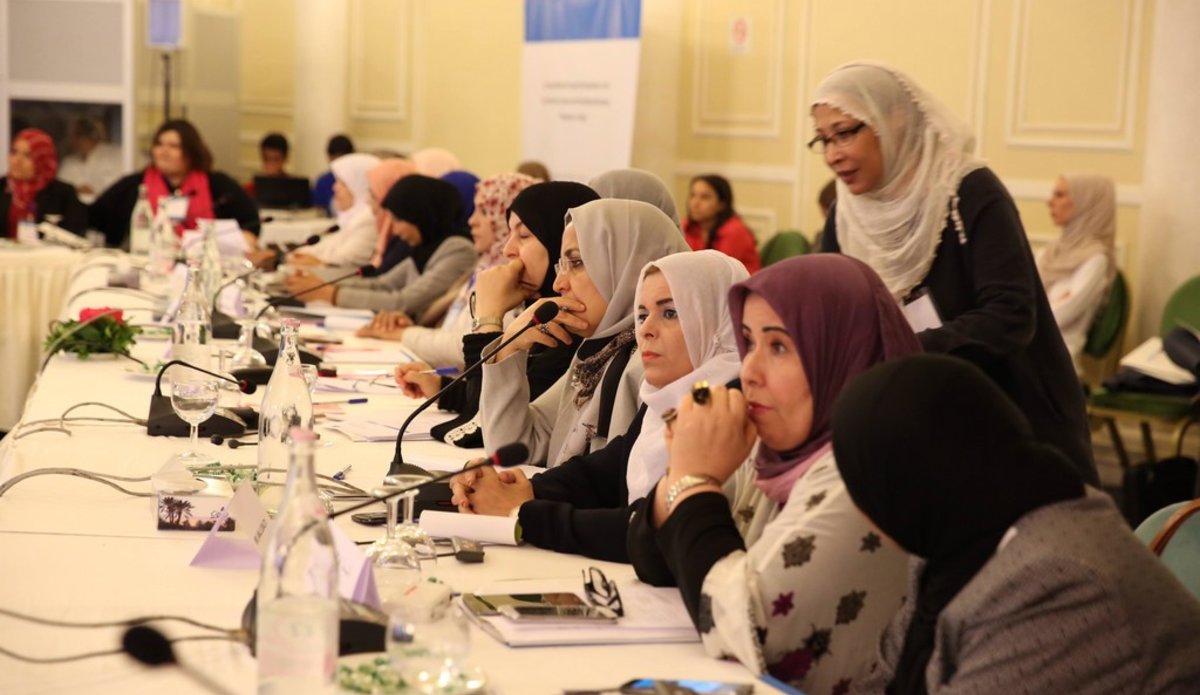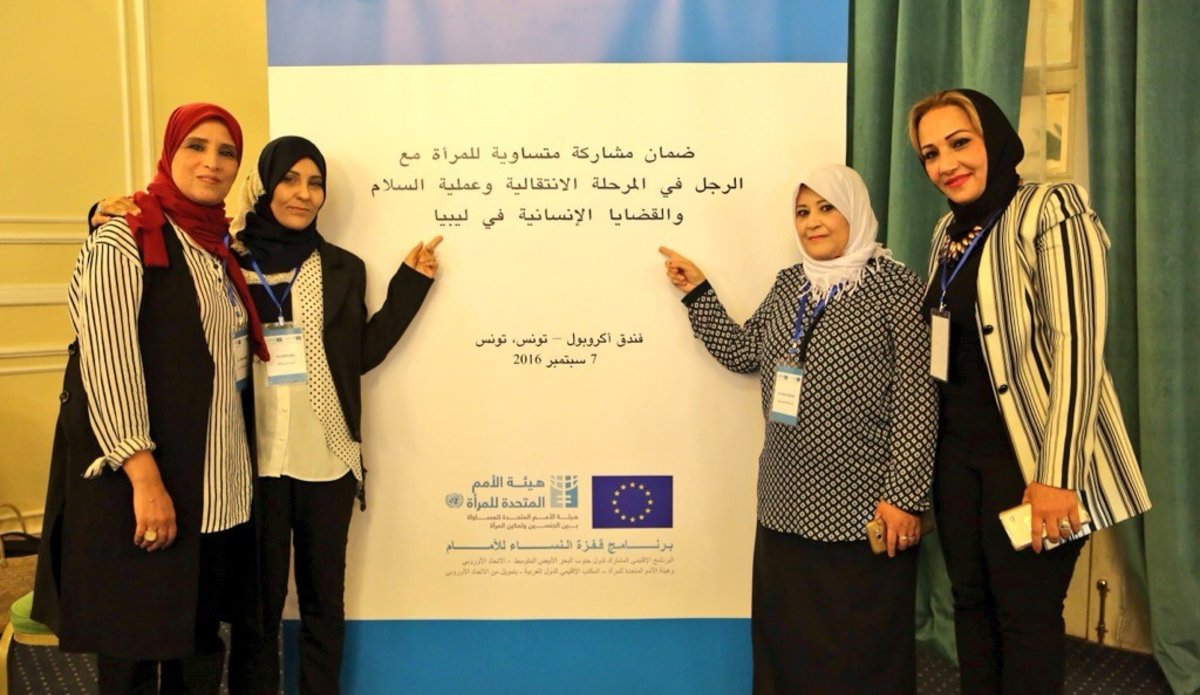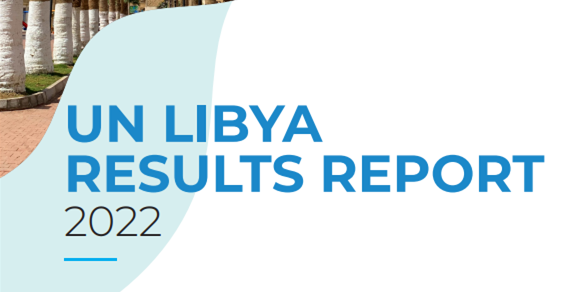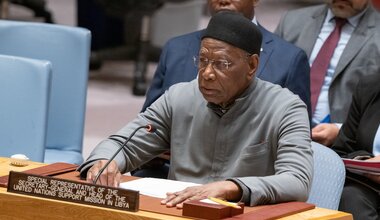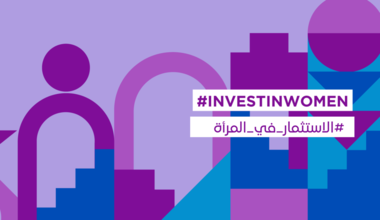EU, UN WOMEN, LIBYAN WOMEN AND INTERNATIONAL ACTORS MEET IN TUNISIA TO ENSURE WOMEN’S ENGAGEMENT IN DECISION MAKING IN LIBYA
Tunis, Tunisia – 7 September 2016, In the framework of “The Spring Forward for Women” programme - a regional European Union (EU) and UN Women joint programme, funded by the European Union, a one-day meeting was organized in Tunis (Tunisia) on 7 September 2016. The meeting entitled “Ensuring Libyan Women’s Equal Participation in the Humanitarian, Peace and Transitional Recovery Processes” aimed at securing spaces for women’s equal and active engagement in the humanitarian, peace and transitional processes, through four tracks: a) rebuilding the state; b) protection; c) prevention; and d) participation.
The European Union is committed to promote women’s rights not only as a goal in its own, but also as they are capable of acting as brilliant agents of economic development. In 2014, the European Union commissioned an extended gender analysis of the Libyan context and of the European Union strategy in Libya. The analysis concluded that in the Libyan context, women struggle in guaranteeing their place in political and public decision-making processes and in the economic sphere. Women also lack awareness and experience in civic and political participation. The adverse security situation has a negative impact on women’s engagement, as limits women’s freedom of movement, women’s safety, health and employment. As a way forward, the European Union and the United Nations will continue to strongly advocate for an inclusive gender responsive constitution; they will jointly promote women’s participation in decision-making processes they will pursue engagement towards the elimination of Gender Based Violence, and will address gender gaps in education, professional training, public administration and employment.
The meeting was attended by Libyan women from inside and outside Libya, participants from civil society, UN agencies, donors and International Non-Governmental Organizations. The participants focused on fostering networking, knowledge and experience exchanges around key issues of gender quality and women empowerment.
During the meeting, Libyan women shared their experiences with the attendees, which provided an opportunity to identify concrete actions to be undertaken in ensuring women’s equal and active political engagement and participation across humanitarian – development continuum. “UN Women’s experience in supporting women’s engagement in the whole process in decision making has proved that women have the power to bring peace and security to their nations,” said Mohamed Naciri, Regional Director for Arab States, UN Women.
The Libyan women and national and international communities discussed the draft constitution, identified key elements in the constitution that can support gender equality and women empowerment (GEWE), and reaffirmed GEWE as essential means for achieving peace and security, human rights, and sustainable development.
The participants discussed how to engage men as partners to enhance the prevention, protection and participation of women in Libya. They identified the mechanisms that need to be in place to ensure that women are protected from violence and discrimination, and more specifically, to encourage and support young women to participate in the decision making process in Libya.
About Spring Forward for Women Programme
The Regional Programme for the Economic and Political Empowerment of Women in the Southern Mediterranean Region (“Spring Forward for Women”) provides a mechanism to advance the economic and political empowerment of women in the Southern Mediterranean region. The programme (2012-2016) supports women across the region, focusing on priority countries undergoing unrest, transition and reform, such as such as Egypt, Jordan, Libya, Palestine and Tunisia, to have greater influence in shaping the future of their countries while protecting their previous gains. It connects stakeholders to ensure that marginalised women in these countries receive capacity building, advocacy, information and partnerships that address the barriers that have impeded their access and engagement in economic and public lives. The programme is financed through a contribution of €7 million from the European Neighbourhood Partnership Instrument (ENPI) and of €1.2 million from the UN Women Core Budget.
 United Nations Peacekeeping
United Nations Peacekeeping UN
UN
